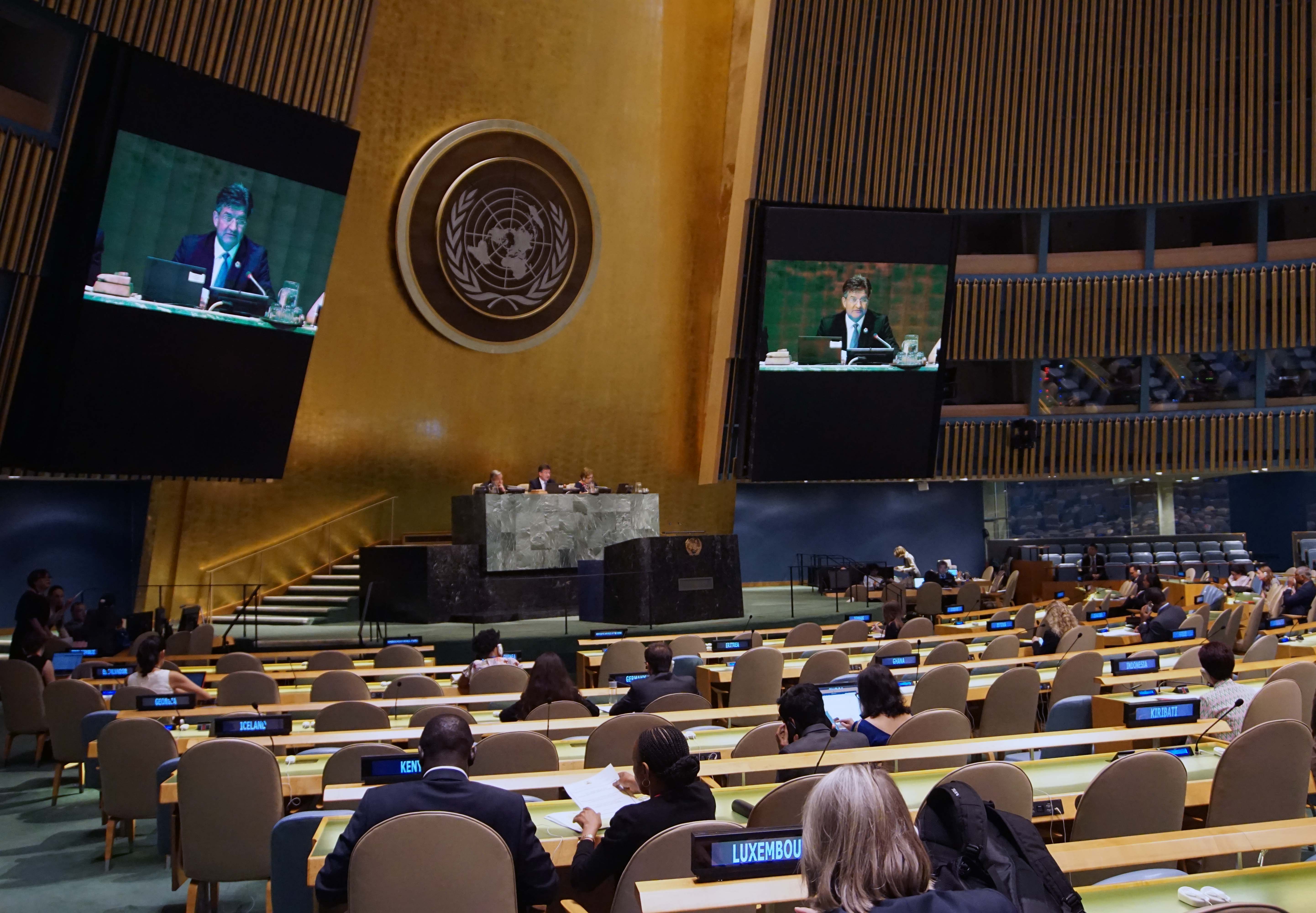General Assembly Annual Plenary Debate on HIV/AIDS

– As delivered –
Statement by H.E. Mr. Miroslav Lajčák, President of the 72nd Session of the UN General Assembly, at General Assembly annual plenary debate on HIV/AIDS
Excellencies, distinguished delegates, ladies and gentlemen,
Welcome – to our General Assembly Hall.
This is our annual debate on HIV and AIDS.
It is an opportunity to hear about progress being made and, also, about the hurdles we still face, in eradicating AIDS from our world.
And, I will make three brief points – before handing the floor over to others. First, I want to say that HIV is, still, a huge challenge.
Yes, there have been success stories – and there has been progress.
We have developed better antiretroviral therapy. HIV-positive people now live longer and healthier lives. We have seen less and less mothers die during pregnancy, or transmit the virus to their babies.
And, overall, there has been a 40% decline in new infections, between 2000 and 2016.
But, we need to be clear: we cannot afford to slow down.
This virus still has a destructive – and deadly – impact on people around the world.
In 2016, one million people lost their lives to AIDS-related illnesses. And, the new drugs and treatments are not available to everyone. In fact, only 53% of people have access to antiretroviral therapy.
That is why we need to work even harder. That is why we have committed to ending the epidemic of AIDS, by 2030. And that is why we are here today.
As my second point, I want to say that we can use today’s meeting to explore opportunities for even more action.
And I want to point to two of them, in particular.
One is the high-level meeting on tuberculosis – which will be held on 26 September. This will be the first meeting of its kind. And it will make a big impact on the work we are doing, here.
People infected with HIV are 20 to 30 times more likely to develop active tuberculosis. And, this makes a lethal combination. Without proper treatment, nearly all HIV-positive people, with tuberculosis, will die.
Also in September, the General Assembly will hold its third high-level meeting on non-communicable diseases.
And this is another major opportunity. Because, people with HIV have a much higher risk of suffering from NCDs.
Which is why we need a more integrated approach than ever.
We must use these– and other – events and platforms to push ahead, with our goal of eradication by 2030.
We all know that healthcare is crucial to Sustainable Development. That is why it has its own goal, in our Sustainable Development Agenda: SDG 3. And that is why, as part of it, we have committed to achieving universal health coverage.
Finally, we cannot forget that what we are doing, today, ties into our other goals and objectives.
And that’s my third point.
We cannot, just, speak about HIV and AIDS.
It is not just about this virus.
We also have to look at the context, around it.
Because, the fact is: we are not on an even playing field.
It is not the case that everyone has the same chance of contracting HIV. It is not the case that everyone has the same chance of surviving it. And this is not the way things should be.
We cannot continue to leave people behind.
And, universal healthcare can help to give everyone a chance. It can level the field.
We all know that healthcare is crucial to Sustainable Development. That is why it has its own goal, in our Sustainable Development Agenda: SDG 3. And that is why, as part of it, we have committed to achieving universal health coverage.
This will be on the General Assembly’s agenda, in 2019. And it could accelerate our drive, to eradicate AIDS, once and for all.
Excellencies, dear colleagues,
We are on the right path. And so, we should be hopeful. But never complacent.
So, let’s keep going.
Let’s keep fighting this virus – and the stigma that comes with it.
Let’s speak up louder – in memory of those who have died, and in support of those who are living, with HIV and AIDS, today.
I thank you.